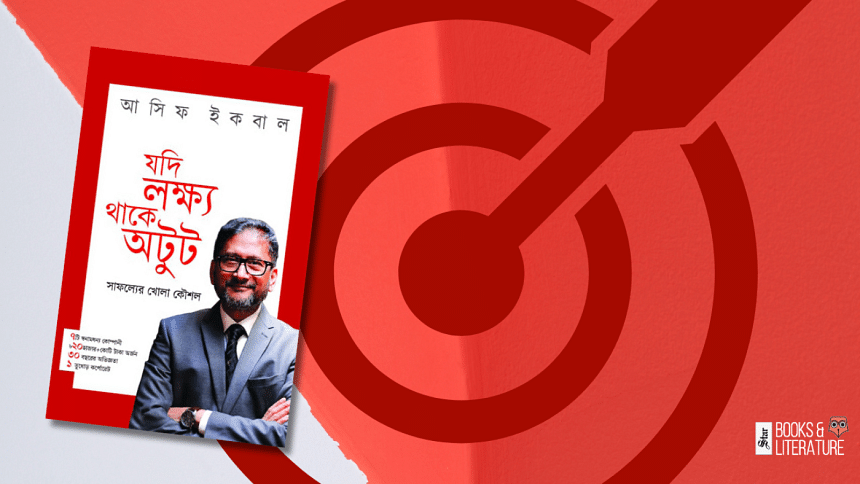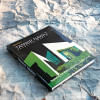‘Jodi Lokkho Thake Otut’: Self-help done right

Growing up, I was always praised as "talented" and "brimming with potential". While these words fostered confidence and encouraged my endeavours, they inadvertently contributed to a laid-back personality that left me defenseless against life's real hurdles. Faced with rejection, I'd often think, "Maybe it wasn't meant for me." When I fell short on a scholarship, I'd conclude, "I probably wasn't good enough."
It took long, drawn-out internal battles with my teenage self to shed my sense of entitlement and genuinely work towards personal growth, rather than relying solely on perceived "talent".
I have come to understand that all of this was due to my fixed mindset through reading Jodi Lokkho Thake Otut: Shafolyer Khola Koushol (If the goal is unwavering: Open secrets to success) by lyricist, entrepreneur, and corporate professional Asif Iqbal. The book itself borrows its title from the author's timeless song, "Jodi Lokkho Thake Otut", a piece frequently cited for its motivational power.
Though "self-help" was never a go-to genre for me, this is one book I wish I had read much earlier. Asif Iqbal masterfully distills 30 years of corporate experience into a collection of timeless instructions, reinforced by references from philosophers, scientists, and scholars.
While the book primarily targets young individuals entering the corporate world, its "back to square one" approach makes it accessible to everyone. Its 15 chapters cover a wide array of subjects, from mental skills and emotional intelligence to team building and best practices at work. These chapters are complemented by 47 infographics, which enhance readability and comprehension.
It's true that you might already be familiar with many topics within these chapters, but familiarity doesn't always lead to acknowledgment. Let me explain: The solutions to many everyday problems are often hidden in plain sight. For instance, if you're struggling to connect with your team at work because you're perceived as overly ambitious or "unrealistic", the solution might simply be to communicate individually with your team members about the "how" of your goals. Of course, life experience teaches us that it's rarely that simple, as fragile egos often get in the way.
This is where Jodi Lokkho Thake Otut truly shines. It serves as a potent reminder that regardless of who you are, you are part of a community, with responsibilities towards it. The book doesn't solely focus on the "me" but instead equips the reader with a profound sense of belonging to the workplace—not merely as a cog in the wheel, but as an aspiring and emotionally intelligent colleague.
While the author does reference Islamic verses to strengthen his points, these verses carry a more spiritual than religious essence. They offer words of wisdom that resonate deeply, even when seemingly removed by a thousand years of context.
Three decades of corporate experience at the highest levels in international companies is no small feat, and Asif Iqbal makes an earnest attempt to embed valuable instances of corporate conduct and problem-solving within the passages. The stories themselves, perhaps, could fill another book entirely.
I can only conclude that if the supposedly corporate Jodi Lokkho Thake Otut: Shafolyer Khola Koushol can enlighten a seasoned journalist who does not have a real "corporate" affiliation, it will do wonders for up-and-coming professionals who are ready to listen. And I mean, really listen.
Sadi Mohammad Shahnewaz is Entertainment Editor at The Daily Star.

 For all latest news, follow The Daily Star's Google News channel.
For all latest news, follow The Daily Star's Google News channel. 








Comments